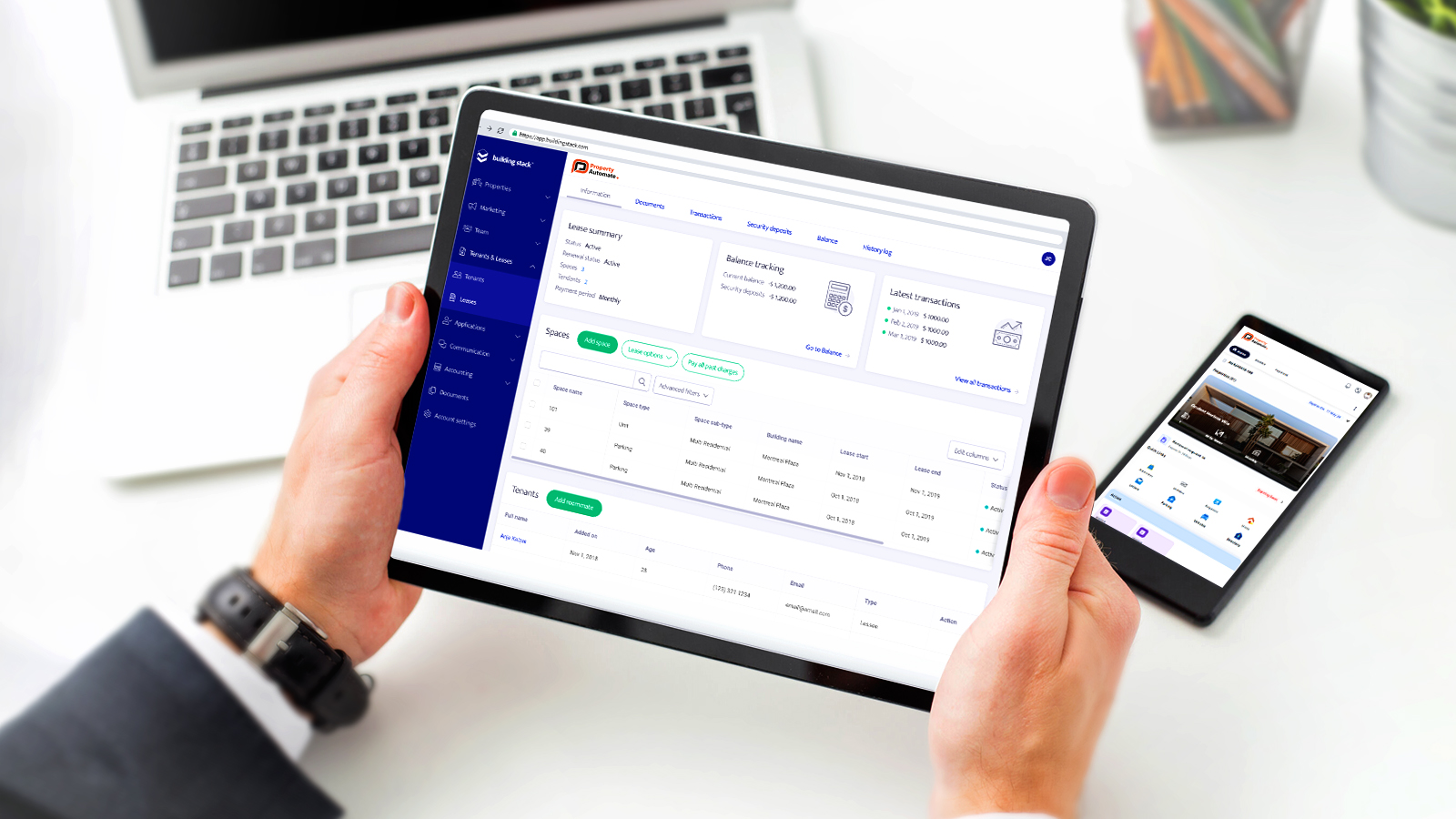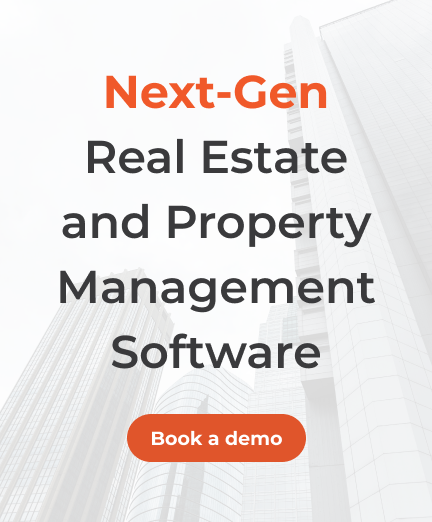How to Choose the Right Lease Management Software
When choosing the right lease management software for your business, consider these 6 factors
Assess Your Requirement: Clearly outline your organization's specific needs and requirements for lease management.
Scalability: Choose a software solution that can grow with your business and adapt to changing requirements.
User-friendly Interface: Opt for software that is intuitive and user-friendly to facilitate seamless adoption across the organization.
Integration Capabilities: Ensure that the software can integrate with other systems used in your organization for a cohesive workflow.
Cost: Ensure it aligns with your budget and delivers value for your business needs.
Vendor Reputation and Support: Research the reputation of the software vendor and assess the level of support provided.
One reliable solution that checks all the boxes—scalability, ease of use, integrations, and trusted support — is Property Automate's Lease Management Software.
Introduction
Lease management software is transforming how businesses handle property leases—eliminating piles of paperwork, missed deadlines, and compliance risks. For property managers, managing leases manually isn’t just time-consuming; it’s a serious operational challenge. From tracking lease terms and rent payments to ensuring legal compliance and managing maintenance, the process can quickly become overwhelming. That’s why companies today rely on lease management software to automate tasks, reduce errors, and improve efficiency. In this guide, we’ll cover what lease management software is, why it matters, its key features, and the best tools to use in 2025.
What is Lease Management Software?
Lease management software is a cloud-based solution designed to streamline and automate various lease management tasks. Cloud computing and storage stood out as the top technology investment choice among senior commercial real estate executives, suggesting that these cloud-based solutions are here to stay.
Platforms like Property Automate’s Lease Management Software offer a centralized solution for tracking, monitoring, and managing all lease-related activities efficiently. From lease creation and tracking to financial reporting and compliance management, it is a comprehensive tool that simplifies the complexities, allowing improved collaboration and enhanced analytical capabilities.
Why Effective Lease Management Matters
Proper lease management plays a vital role in reducing financial risks and ensuring legal compliance. It helps businesses stay on top of payment schedules, renewal dates, and contract terms—avoiding costly mistakes and penalties. By organizing lease data in one place, it improves transparency and supports smarter financial planning. Moreover, effective lease management gives property managers and business owners the insights they need to optimize asset usage and make informed decisions.
Conclusion
Efficient lease management is essential for any business that handles leased properties or assets. With the help of modern lease management software, you can automate key tasks, reduce manual errors, and ensure full compliance with lease terms. Adopting the right software not only improves accuracy but also enhances decision-making and operational efficiency. As the real estate and leasing landscape evolves, staying updated with the latest tools and best practices is key to long-term success.
Ready to simplify your lease management process?
Connect with our experts today for a free demo of our lease management software lease management software and see how it can transform your leasing operations.
Benefits of Using Lease Management Software
Increased Efficiency: Lease management software automates time-consuming tasks, such as data entry and document management, allowing businesses to focus on strategic activities.
Accuracy and Compliance: It helps in maintaining accurate and up-to-date records, ensuring compliance with lease terms and regulatory requirements.
Cost Saving: By reducing manual errors and streamlining processes, lease management software can lead to significant cost savings in terms of time and resources.
Improved Decision Making: Access to real-time data and analytics empowers businesses to make informed decisions in overall portfolio management.
Improved Collaboration: Strategic alignment in lease management involves diverse stakeholders. LMS ensures everyone works with the latest data, enhancing efficiency and promoting strategic thinking.
Comprehensive Reporting and Analytics: The software simplifies tracking payments, managing deadlines, and generating comprehensive reports for audits.
How Lease Management Software Works?
Lease management software centralizes all lease information into a secure, cloud-based platform and automates critical processes, giving businesses a simpler, more efficient way to manage leases. Here’s how it works:
1. Centralized Data and Easy Access
All lease agreements, payment schedules, and compliance requirements are stored in a single, cloud-based dashboard, making it easy for authorized users to access the information from anywhere.
2. Automating Key Processes
The software takes care of repetitive tasks such as rent reminders, renewal alerts, and compliance tracking, eliminating manual work and reducing the risk of missed deadlines.
3. Seamless Integration with Other Tools
Most solutions integrate with accounting software, CRM systems, and property management platforms, ensuring smooth workflows and reducing duplicate data entry or errors.
4. Real-Time Reporting and Analytics
Users get automated dashboards with real-time insights on financial health, occupancy rates, upcoming renewals, and other critical metrics to support data-driven decisions.
5. Role-Based Access and Permissions
With role-based permissions, property managers can collaborate with finance teams and legal staff securely without exposing sensitive data to the wrong people.
6. Mobile Accessibility
Modern lease management software comes with mobile apps or responsive dashboards, allowing users to manage leases, approve requests, and track reports on the go.
Features of Lease Management Software
Portfolio Management: Centralized dashboard for overseeing all lease agreements and tracking key metrics.
Document Management: Secure storage and organization of lease documents, making it easy to retrieve and share information.
Ability to Customize: The system's versatile customization options empower you to tailor it to your specific business needs, accommodating even complex customizations with ease
Automated Payment Tracking: Reminders and notifications for upcoming lease payments, avoiding late fees and penalties.
Accounting: flexibility to seamlessly integrate lease management programs with your existing accounting systems, streamlining and simplifying the financial processes.
Compliance Management: Tools to ensure adherence to regulatory requirements and lease terms.
Reporting and Analytics: Customizable reports and analytics for better decision-making and strategic planning.
Data Security: Ensuring robust data security, the lease management software employs advanced encryption measures to safeguard sensitive information and protect the integrity of your valuable data.
Types of Lease Management Software
Lease management software is primarily divided into two distinct categories: on-premise and cloud-based solutions, each offering unique advantages and considerations for businesses seeking efficient lease management solutions.
On-Premise LMS: It is locally installed and controlled within an organization's infrastructure, providing complete governance but requiring substantial upfront investment and maintenance.
Cloud-based LMS: It offers flexible and collaborative lease data management, utilizing online servers for accessibility and scalability.
Tailored to the diverse needs of the real estate industry, lease management software primarily categorized into three distinct types
Commercial Real Estate LMS: It is a sophisticated tool designed to efficiently handle and optimize the complexities of managing lease agreements for commercial properties, such as warehouses, retail, offices, hotels, etc.
Residential Real Estate LMS: It provides a user-friendly and comprehensive solution tailored for efficiently managing lease agreements in the residential property sector, such as apartments, condominiums, town houses, etc.
Industrial LMS: Tailored for the unique needs of industrial units, it facilitates efficient management of warehouses, factories, and industrial spaces, enhancing operations, overseeing leases, and ensuring regulatory compliance.
Emerging Trends in Lease Management
Technology and Data: Using technology and data is becoming more common to make leasing processes smoother and improve the overall experience for landlords, tenants, and brokers; popular tools include online marketplaces, digital contracts, smart buildings, and AI analytics
Sustainability: There's a growing focus on making spaces eco-friendlier and healthier, aiming to improve the quality and value of the space and keep stakeholders happy; this involves adopting practices like green certifications, energy efficiency, waste reduction, biophilic design, and wellness programs.
Customizable Lease Agreements: Lease customization is becoming more popular as it offers adaptable terms and conditions, accommodating changing business needs by providing options like short-term leases, co-working spaces, expansion flexibility, and renegotiation possibilities.
Enhanced Tenant Experience: There’s a growing emphasis on enhancing the tenant experience, that focuses on incorporating tenant-centric features and services, such as advanced technology for streamlined communication, personalized amenities, and efficient issue-resolution processes.
Efficient Lease Management Practices
Centralized Data Management: Leveraging lease management software maintains a centralized repository for all lease-related information to ensure accessibility and accuracy.
Process Standardization: Simplifying your lease processes by crafting templates for lease agreements and renewal notices saves time and minimizes errors.
Regular Audits and Reviews: Conduct regular audits of lease agreements and performance reviews to identify areas for improvement.
Collaboration and Communication: Promote collaboration between different departments involved in lease management and ensure effective communication.
Stay Informed About Regulatory Changes: Keep abreast of changes in lease accounting standards and other relevant regulations to ensure compliance.
FAQ's
1. Why do businesses need lease management software?
Businesses need lease management software to reduce manual errors, save time, and stay compliant with lease terms. It automates rent reminders, renewal tracking, and generates real-time insights for better decision-making.
2. Who should use lease management software?
Property managers, landlords, real estate professionals, and any business that manages multiple leases or assets can benefit from using lease management software.
3. What are the key features of lease management software?
Essential features include lease tracking, automated payment reminders, document storage, compliance management, reporting, and alerts for critical dates.
4. How does lease management software improve efficiency?
It automates repetitive tasks, minimizes errors, ensures timely payments, and provides real-time insights to help businesses manage leases effectively.
5. Is lease management software suitable for small businesses?
Yes. Many lease management tools offer affordable, scalable plans tailored for small and medium-sized businesses, making them easy to adopt.





